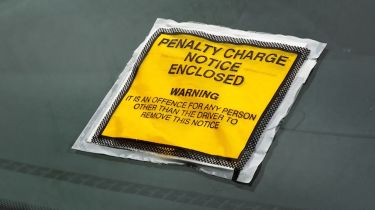New Private Parking Code of Practice to enforce grace period for parking fines
The British Parking Association has announced that it will implement a new Code of Practice for private car parks later this year, with changes to boost the confidence of motorists

Private car parks in the UK must abide by an all new set of rules, set to be implemented later this year.
Championed by the British Parking Association (BPA), as well as the International Parking Community (IPC), the new ‘Private Parking Code of Practice’ aims to put more power in the hands of drivers with a single comprehensive set of ‘parameters’ that all private car parks must adhere to.
The key points in the new code include a mandatory 10-minute grace period for parking charge notices (PCNs), a consistent set of signage and rules, a clear and transparent Appeals Charter for those challenging fines, plus the formation of a new ‘oversight group’ to make sure those managing parking on private land are following the rules.
The BPA has emphasised that its new all-encompassing code of conduct will continue to fight the corner of Blue Badge holders. The parking trade association says it will continue to help clamp down on “those who choose to park selfishly, putting their own convenience above the needs or rights of others.”
The all-new Private Parking Code of Practice is set to be fully published in June of this year, before being implemented later on in October. Private car parks will have until 2026 to bring their signage and other procedures in-line with the new rules, however, all new locations established from October will have to abide by the list of requirements.
Those that don’t comply risk expulsion from the BPA – a hefty punishment as membership is the only way to access the DVLA’s KADOE service, which allows operators to track down vehicle keeper data and issue fines.
Chief executive of the BPA, Andrew Pester, said the implementation of a single industry-wide code of practice is “a crucial milestone as we work closely with Government, consumer bodies and others to deliver fairer and more consistent parking standards for motorists. We will continue to push for a positive outcome for all.”
While a bill to produce an official Parking Code of Practice reached Royal Assent in 2019, the government compiled and then “temporarily” withdrew its draft set of rules in 2022 after the BPA raised concerns over proposed lower PCN fines, as well as the removal of the debt recovery fee.
The parking association’s new set of rules will supposedly implement the “key elements” of the government’s original plan, with a commitment to update and maintain the code over time. Nevertheless, the announcement has still prompted objections from critics, with head of policy for the RAC, Simon Williams, saying: “We’re flabbergasted that the BPA and IPC have suddenly announced plans to introduce their own ‘private parking code’ after doing all they can over the last five years to prevent the official Government Code coming into force.
“While there are clearly some positive elements to what the private parking industry is proposing, it conveniently avoids some of the biggest issues around caps on penalty charges and debt recovery fees which badly need to be addressed to prevent drivers being taken advantage of.”
Do you agree with the new car parking rules? Let us know your thoughts in the comments section...
Find a car with the experts





